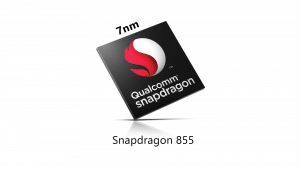Taiwan Semiconductor Manufacturing Co. is known for making the A11 Bionic chip used on the Apple iPhone X. But since last two years chipsets deployed in high end Android smartphones — the Snapdragon 820 and the Snapdragon 835 — were manufactured by Samsung.

The Snapdragon 845, which is said to be used on upcoming Galaxy S9 and the OnePlus 6 is in fact also being produced by Samsung. But a new report from Nikkei Asian Review claims that TSMC has finally bagged the contract to produce modem chip and core processor for the Snapdragon 855. The report quotes chip industry executives familiar with the matter saying “Qualcomm is engaging TSMC to roll out a modem chip very soon in the first half of 2018 and TSMC will manufacture the mobile giant’s upcoming flagship Snapdragon processor, known as Snapdragon 855, before the end of next year”.
It is not the first time TSMC will be making chips for Qualcomm. The Snapdragon 808 and the 810 were both made by the Taiwanese chip maker. But Snapdragon 810 didn’t turn out to be Qualcomm’s best, plaguing Android phones with overheating issues. The designs were from Qualcomm, though.
Huawei’s Kirin 970 and Apple’s A11 both have a dedicated chip to handle AI based algorithms which software makers are relying on heavily to improve everything from camera to voice recognition. Though there are AI optimizations on the Snapdragon 845, it is limited to the architecture and improved task scheduling.
But it doesn’t have a dedicated core to take care of AI like the other two chipsets do. The Kirin 970 uses it to take care of AI algorithms used all over the EMUI 8.0 on the Honor V10, while the A11 chip uses for myriad of tasks, the face recognition to be one.
The report also claims that modem chips and the new Snapdragon processor from Qualcomm will utilise TSMC’s latest 7 nanometer technology. It also revealed that same tech will be used to manufacture chipsets for Apple phones of 2018. All chipsets are currently being manufactured on the 10nm process — the smallest scale for manufacturing mobile chipsets.



























